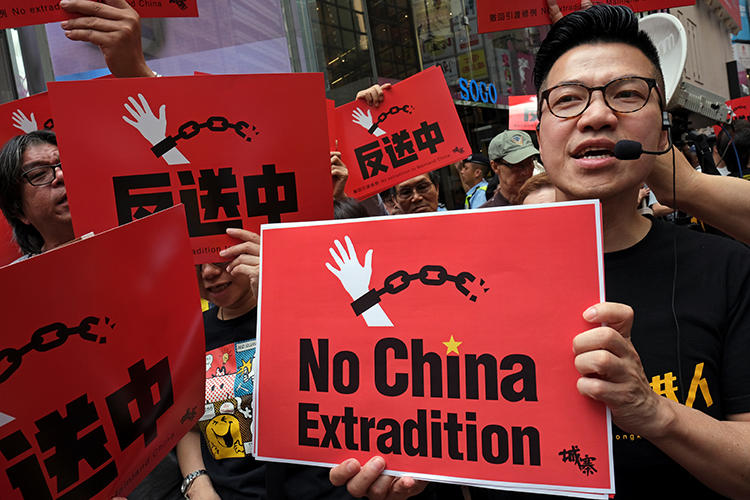Hong Kong, May 13, 2019 — The Hong Kong government should withdraw a proposed bill amending its extradition law that potentially exposes journalists and others in Hong Kong to criminal trial in mainland Chinese courts, or modify the bill to include additional safeguards to prevent arbitrary rendition, the Committee to Protect Journalists said today.
Journalists, lawyers, and academics tell CPJ they worry that the amendment, if enacted, would expose critical journalists to extradition to China on trumped up charges, severely compromising Hong Kong’s independent judiciary and undermining the rule of law, including legal guarantees for freedom of expression.
“Judicial independence and freedom of the press have underpinned Hong Kong’s economic success for decades,” said Steven Butler, CPJ’s Asia program coordinator. “The proposed extradition bill threatens to undermine both by introducing the standards of China’s highly politicized judicial system to the territory.”
The bill would allow Hong Kong to send fugitive suspects to places where it lacked extradition agreements, including mainland China, on a case-by-case basis, according to news reports. The proposal was announced on February 12 in response to a murder case, and is currently under consideration in the Hong Kong legislature, according to those reports.
In a February 28 statement, the Hong Kong government argued that adequate safeguards are built into the legislation to prevent China from using the law for political purposes, as extradition to China would take place only after judicial review and a recommendation from Hong Kong’s chief executive.
However, lawyers and journalists expressed concern to CPJ, saying that judicial review is a procedural step during which judges would not examine the underlying evidence, and that the chief executive is subject to political pressure from the Chinese government.
“Journalists will be more cautious,” Chris Yeung, chair of the Hong Kong Journalists Association, told CPJ. While the law is not explicitly aimed at journalists, it “will become a kind of political weapon, a tool that [the mainland government] can use when necessary, and you never know when they will find it necessary,” he said.
China is the world’s second worst jailer of journalists, according to CPJ’s annual prison census, with at least 47 journalist in prison for their work as of December 1, 2018.
Chief Executive Carrie Lam’s office acknowledged CPJ’s request for comment but did not immediately give a response. Lam and Justice Secretary Teresa Cheng have strongly defended the measure and ruled out further changes to the proposed bill, according to news reports.
Local business, law, and media groups have issued statements against the bill. On April 28, tens of thousands of Hong Kong residents staged a demonstration opposing changes to the extradition law, according to news reports.
